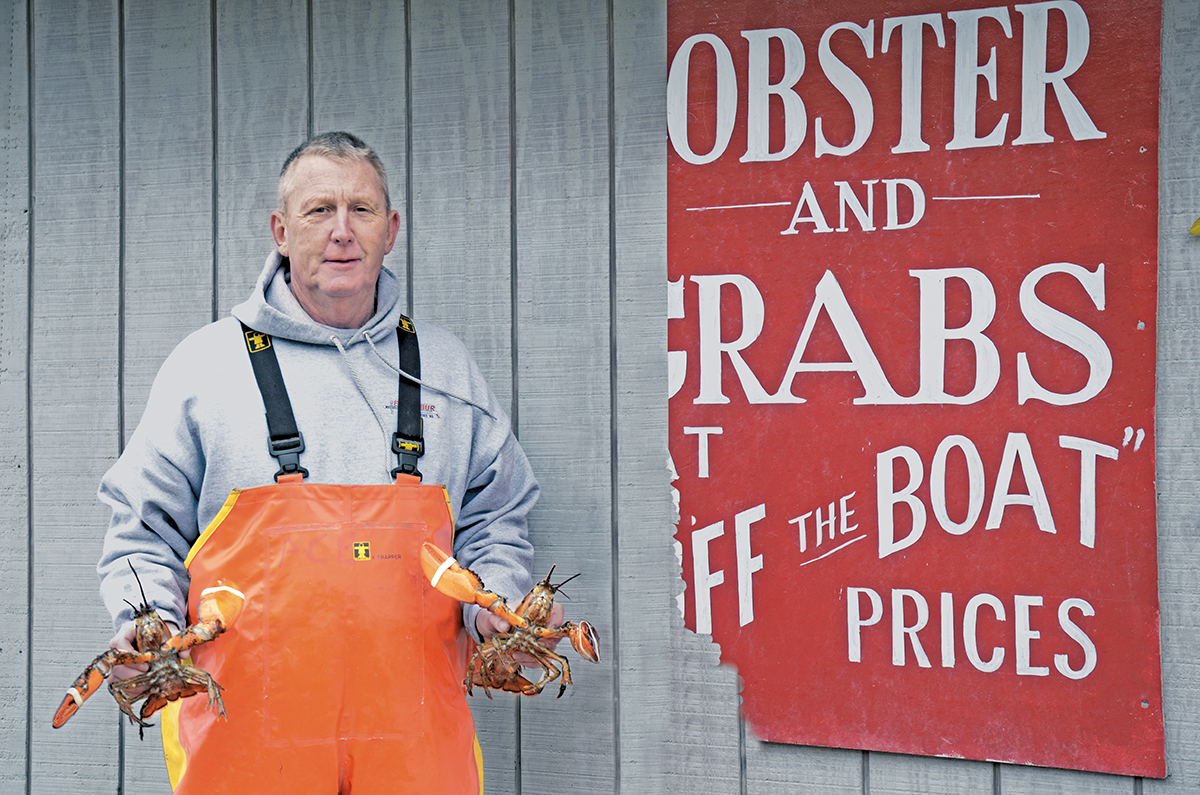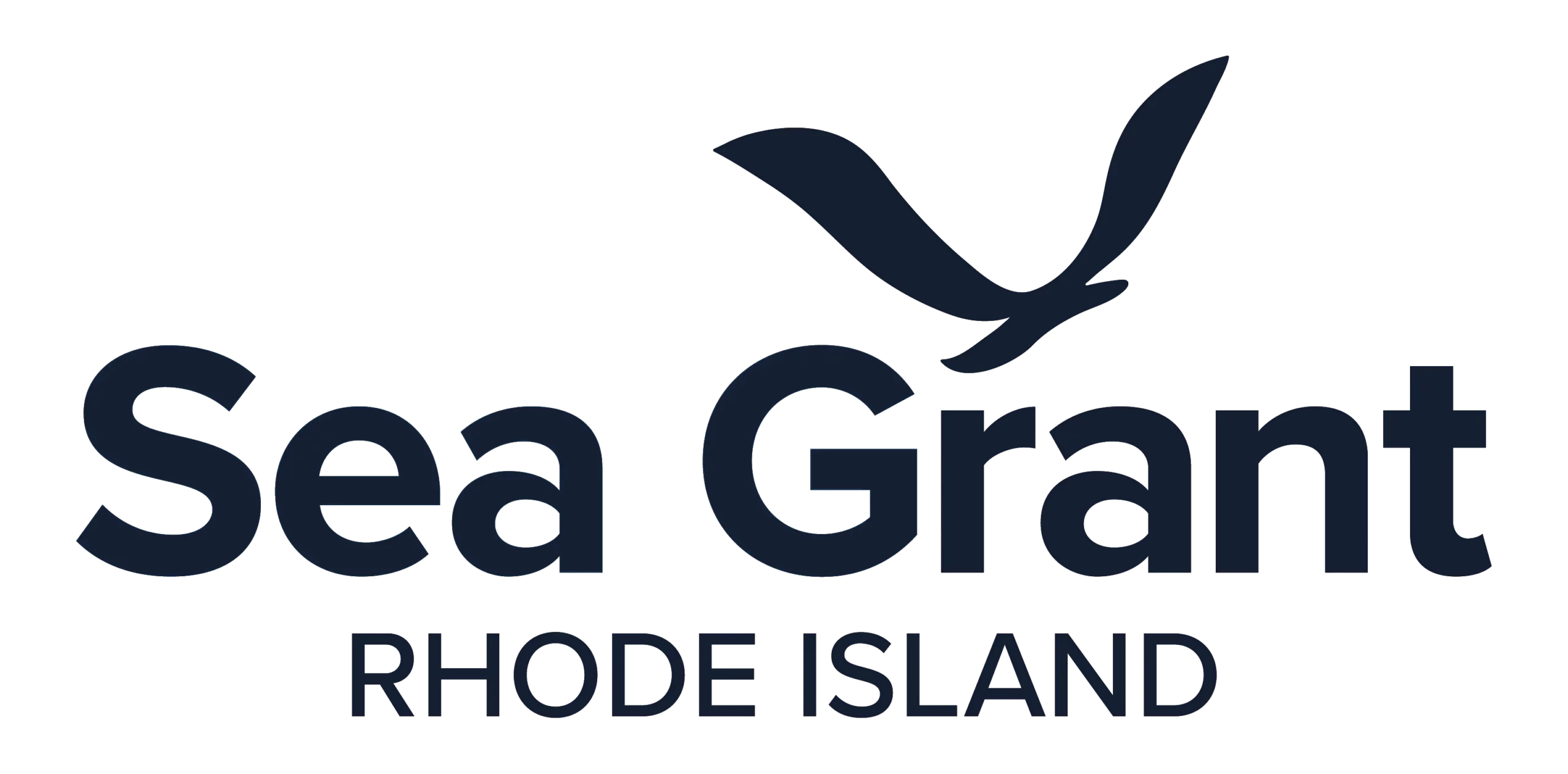Bought a lobster right from the dock? Research seeks to understand how–and if–direct sales helped local fishermen in the COVID-19 pandemic. Two social scientists talked about their process in a recent webinar.

By Amanda Valentine
Dawn Kotowicz, social science and extension specialist for Rhode Island Sea Grant, and Gabby Bradt, marine fisheries program specialist for New Hampshire Sea Grant, recently presented their research on direct sales and challenges for Rhode Island and New Hampshire lobstermen during the pandemic as part of the Sea Grant Lobster Initiative. Their research, which is ongoing, seeks to understand how lobstermen in the two states have responded to COVID-19 industry shutdowns.
With traditional retailers such as restaurants unavailable, lobstermen were faced with not working or finding an alternative market to sell to. Most turned to direct sales, selling lobster directly to the public—sometimes right off their boat.
This shift piqued the interest of Bradt and Kotowicz, who, having worked frequently with lobster industry stakeholders on prior collaborative research projects, established a sample population to survey regarding their experiences.
In New Hampshire, lobstermen responded to the loss of the market by building a new one from scratch.
“I started hearing more and more about people using social media to try and get consumers down to the docks to see if they can get some fresh seafood,” Bradt recounts. “I started to really wonder who was doing it, who was selling directly, was it allowed … what kind of precautions were being taken at the time when nobody knew anything really about how COVID was spreading?”
In contrast, direct sales were not an unfamiliar option for Rhode Island fishermen.
“Totally coincidentally, Rhode Island [Department of Environmental Management] started a pilot program for direct sales for fishermen in March of 2020,” says Kotowicz. “So, some fishermen had already purchased licenses to try selling directly before COVID shutdown started happening.”
Rhode Island fishermen had been able to sell crab and lobster directly off their boats before the pilot program, so long as they obtained an endorsement from RIDEM, but the new license would allow for more freedom in their methods of sales.
To find out how fishermen had adapted to direct sales during the pandemic, Bradt and Kotowicz began the lengthy process of survey development. Other Sea Grant staff, industry stakeholders, and New Hampshire Fish and Game were all involved in the creation of questions for the survey. This collaboration was especially pertinent for Bradt.
“Because of consent, confidentiality and everything, I’m not actually allowed to have a contact list of the people who were doing direct sales,” explains Bradt. “I actually really have to work with Fish and Game and they will send out the link and so on to the survey … It was really important that they could see what kinds of questions we were asking and making sure that we weren’t asking things that we weren’t really allowed to get the data for.”
Bradt mentioned that the research team had to be mindful of “survey fatigue” among fishermen, who have filled out an influx of surveys since the pandemic began. For this reason, the team narrowed down the survey to only the most necessary questions and focused on checkboxes rather than open answers.
Many of the survey questions are identical, but the final two surveys differ slightly. While the survey distributed in New Hampshire focuses solely on lobster sales, fishermen with direct sales licenses in Rhode Island sell all kinds of seafood, so the latter survey accommodates for this additional experience.
Even with connections and collaboration, the research process has not been all smooth sailing.
“The need was expressed right when the COVID shutdown started, but by the time it got to me, and I realized we needed to go through approvals to do research with people, it was really delayed,” said Kotowicz.
Kotowicz also found difficulty in being unable to reach fishermen who had participated in the March 2020 pilot program, but who had not renewed direct sales licenses and were therefore untraceable. Other factors, like delays in funding and employee absences related to the pandemic, slowed distribution of the survey.
“Under normal circumstances, I don’t think it would have taken quite as long, but I still think because the pandemic was so traumatic … I think people are going to remember what their experiences were for a while,” Bradt concluded, optimistic. “I kind of also hope that once we pull out what we get, once we look at our data, hopefully in the next couple of months that maybe others, other states, might kind of expand on it.”
The data collected so far has not yet been published, because the Rhode Island survey was not launched until the end of last year and the New Hampshire survey is still awaiting final approval. Despite setbacks, the two remain committed to several end goals.
They plan to compile a two-page paper to be shared with the public, as well as put together a presentation for the American Lobster Initiative, a regional effort of New England’s Sea Grant programs. If more New England states, like Maine and Massachusetts, choose to participate in similar surveys, they have imagined other creative ways they might share their research.
“I’m envisioning displaying the data that we collect in sort of a ‘dashboard,’” said Bradt. “You could click on New Hampshire and see how many people used COVID-19 protocols when they started to sell and for how long, and then you could also have another dashboard about how many people did home delivery. Really fun ways of displaying these data graphically, interactively, and also that is really informative.”
Ultimately, they hope the data will enable Sea Grant programs to better identify challenges within fisheries with which they may be able to help. Local decision makers, like DEM fisheries or food advocates, will also have access to the data, and are welcome to work with Sea Grant programs to implement any necessary changes.
Sea Grant Lobster Initiative Collaborative Chats
If you missed this month’s webinar from the Sea Grant Lobster Initiative on the evolution of direct sales for Rhode Island and New Hampshire lobstermen, you can still watch it here as well as past webinars.
